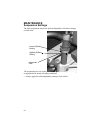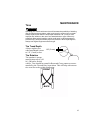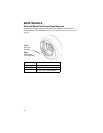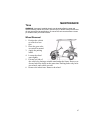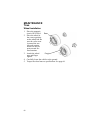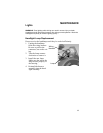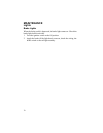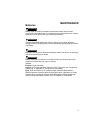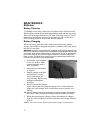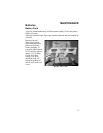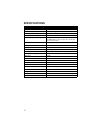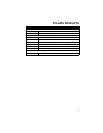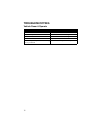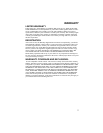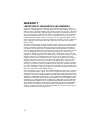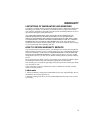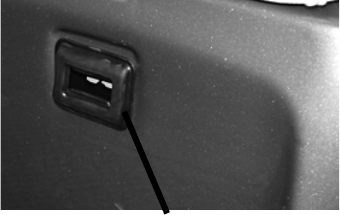
72
MAINTENANCE
Batteries
Battery Cleaning
If cleaning is necessary, remove the corrosion with a stiff wire brush.
Wash with a solution of one tablespoon baking soda and one cup water.
Rinse well with tap water and dry off with clean shop towels. Coat the
terminals with dielectric grease or petroleum jelly. Be careful not to
allow cleaning solution or tap water into the batteries.
Battery Charging
When not in use, park the vehicle indoors and connect the battery
charger. The vehicle’s charging receptacle is located on the body below
the driver’s seat base.
WARNING! Failure to provide adequate ventilation while charging batteries can
result in an explosion. Hydrogen gas is emitted during charging and will rise and
accumulate at the ceiling. Always ensure a minimum of five (5) air changes per
hour in the charging area. Never charge the batteries in an area subject to a
flame or spark, including areas containing gas or propane water heaters and
furnaces. Do not smoke in the charging area.
1. Position the vehicle indoors
on a level surface. Make
sure the charging area is
well ventilated.
2. Open any door enclosures
or zippers.
3. Inspect charger cords and
receptacles for cracks,
loose connections and
frayed wiring. Replace any
damaged components
promptly.
4. Always connect the charger
to the vehicle first, then plug the charger into a wall receptacle.
Make sure each charger uses a dedicated circuit to prevent over-
loading.
Tip: After the batteries have fully recharged, the battery charger will automati-
cally cycle in and out of the trickle charge mode to maintain the charge.
5. When disconnecting the charger, always disconnect the charger
from the wall receptacle first, then disconnect the charger from the
vehicle.
NOTE: Refer to the manual supplied with the battery charger for further details.
Charging Receptacle



